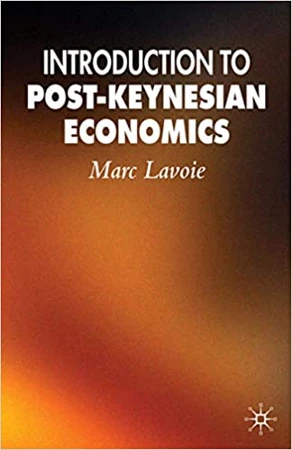Introduction to Post-Keynesian Economics

Blurb
This book offers an accessible introduction to post-Keynesian economics, showing that there is an alternative to neoclassical economics and its free-market economic policies. Post-Keynesian economics is founded on realistic assumptions, such as interest targeting by central banks or constant average variable costs in manufacturing and services.
Book summary
This book gives an introduction to post-Keynesian economics in a simple and clear way. It showcases how Post-Keynesianism differs from New Keynesianism and mainstream economics, and rejects several notions and assumptions of mainstream macroeconomic theory, such as the Phillips Curve, 'voluntary' unemployment, the quantity theory of money, etc. Lavoie aims to offer a true alternative to the dominant school of thought (neoclassical), which he believes Post-Keynesianism does, because it is more closely linked to the real economy. He shows how, unlike in neoclassical theory, a rise of the stock of money does not automatically increase prices, and a rise in the minimum wage does not lead to an increase in unemployment.
Comment from our editors:
This book is a great supplement to standard macroeconomic undergraduate courses, as well as more advanced ones. Post-Keynesian economics offers an alternative to mainstream economic theory and the notion of free markets maximizing welfare at all times. Thus, Post-Keynesianism is one of the heterodox schools of thought, which you can read more about here. Also, find his textbook Post-Keynesian Economics - New Foundations here.

